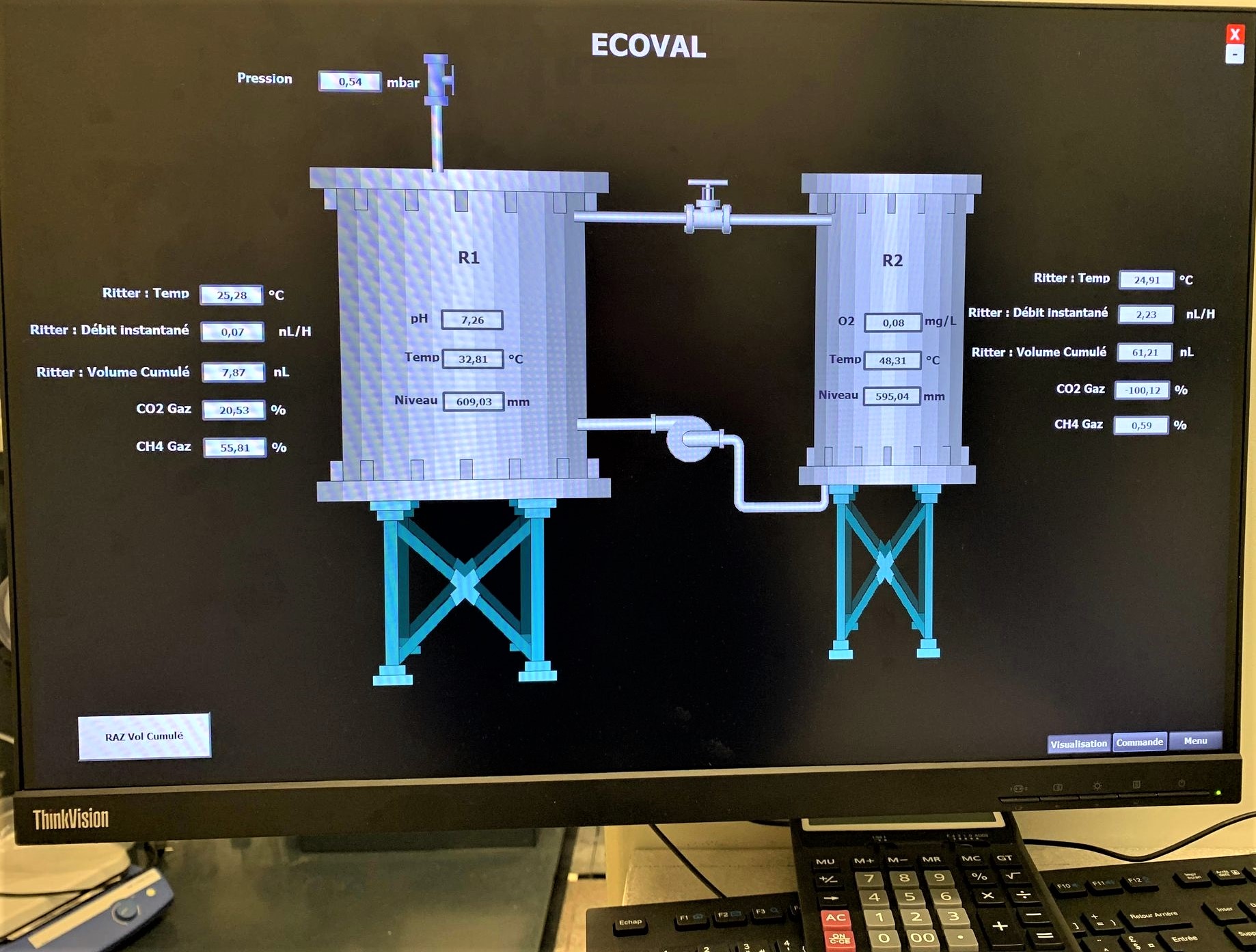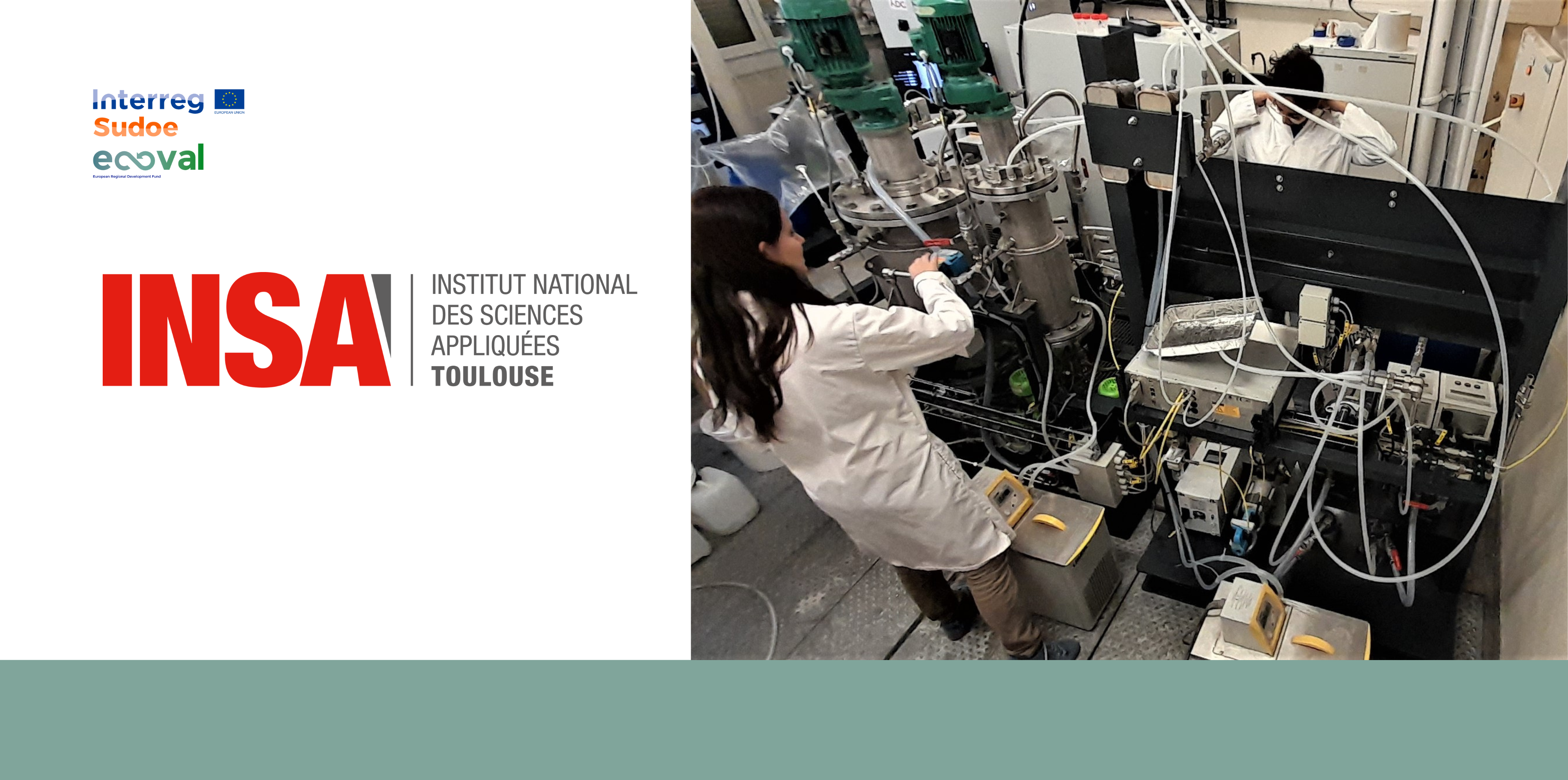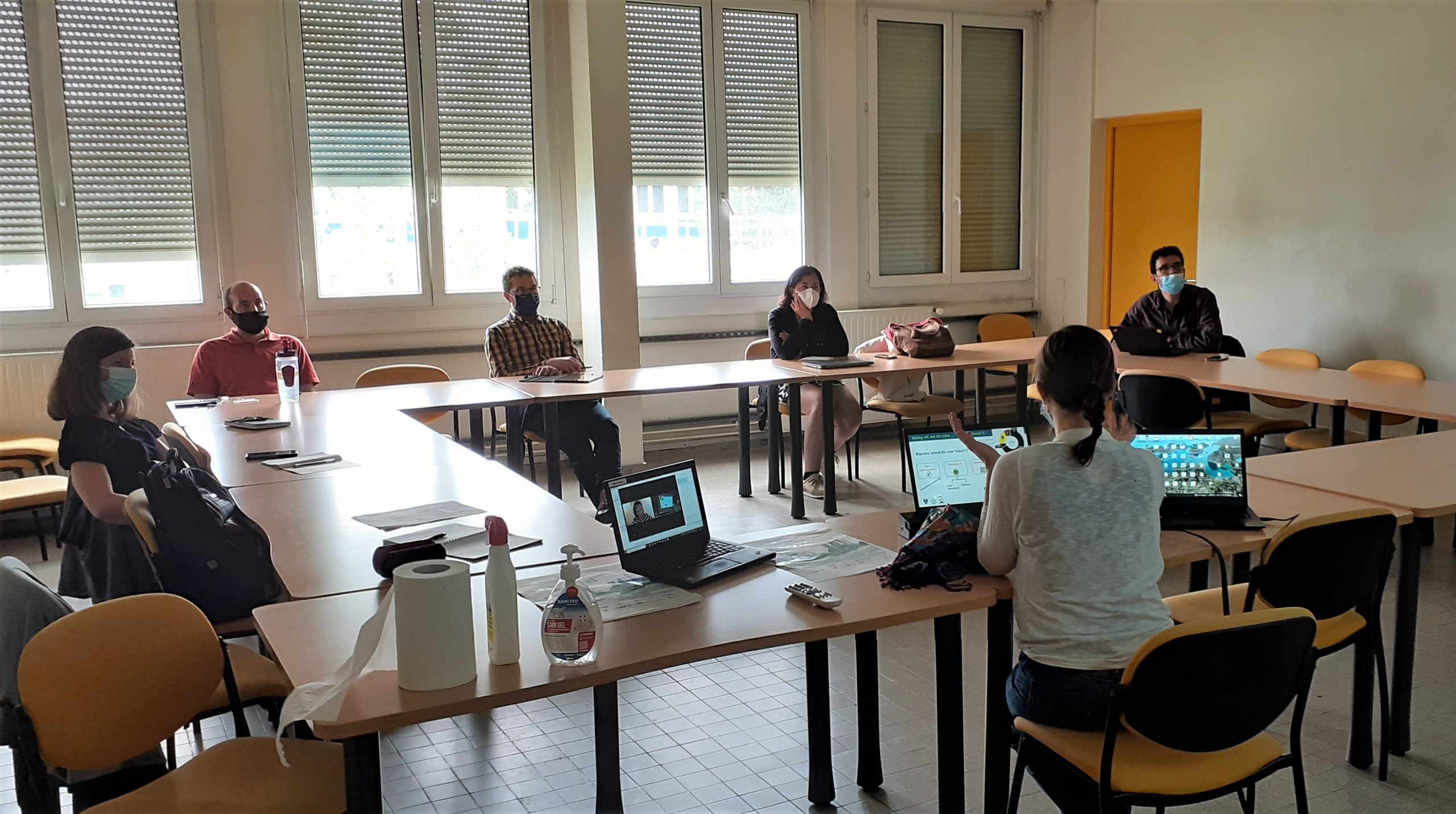With more than 17,000 engineers working in all economic sectors, the National Institute of Applied Sciences of Toulouse (INSA Toulouse), a public scientific, cultural and professional institution under the authority of the French Ministry of Higher Education, was created in 1963 and is recognised for the excellence of its training and its students. Its participation in the Sudoe ECOVAL project focuses on three actions: the optimisation of volatile fatty acid production in bioreactors, the evaluation of the methanogenic potential of acidogenesis digestates and the development of a model of the global urban biowaste management system.
Optimisation of volatile fatty acid production in bioreactors
In collaboration with CETAQUA, INSA Toulouse is working to optimise the production of Volatile Fatty Acids (VFA) from biowaste. This production is carried out in a bioreactor that performs acidogenesis. The VFA are then extracted and purified for commercial use. INSA Toulouse uses a dynamic simulation model of the acidogenesis process to describe the evolution of substrates and reaction products according to the operating parameters of the process. This tool makes it possible to choose the operating conditions that lead to the most significant production of VFAs and the most favourable for commercialisation. A collaboration with the company Nereus led to the integration of VFA recovery constraints into the criteria for optimising VFA production.
The progress achieved allows the variability of bio-waste and inhibitions of certain biological processes to be taken into account in order to better predict the quantities and qualities of the products formed.
Assessment of the methanogenic potential of digestates from acidogenesis
After the production of VFA, a material residue remains that can be recovered by methanisation. INSA Toulouse is evaluating methane production on this residue. It is developing an original continuous process that increases methane production and thus bio-waste recovery. This process is based on a coupling between mesophilic digestion of the waste coupled with thermophilic digestion of the digestate. The progress achieved makes it possible to reduce the quantity of sludge to be disposed of thanks to a more thorough degradation of the mixed sludge. We will see this autumn whether these results can be reproduced on acidified sludge waste and then on biowaste.
The development of a model of a global municipal biowaste management system
The global modelling tool allows the assessment of bio-waste management channels at the city level. The objective is to quantify the production of bio-waste in an urban territory and to optimise its collection, transport, treatment, and valorisation into volatile fatty acids and methane. The modelling is developed using data and scenarios from three cities: Toulouse (France), Porto (Portugal) and Palencia (Spain); with different sizes, urban planning, and collection strategies. Toulouse and Palencia are committed to the collection at voluntary drop-off points (VDPs) and composting, while Porto already has a door-to-door collection.
The three case studies are used to compare various treatment solutions: composting and/or anaerobic digestion by 2030 or VFA production. The comparison is made on the basis of flow and energy balances. The cooperation with another partner (Biogroup CRETUS USC) also allows comparison on the basis of the environmental impacts of bio-waste management channels. The model is already developed and simulations of the first scenarios are being carried out.
Ultimately, this modelling tool and the resulting results will help communities and companies to make decisions on the most virtuous management methods from the point of view of environmental impact and economic profitability. It will also allow the identification of priority areas in the sector to be optimised.




